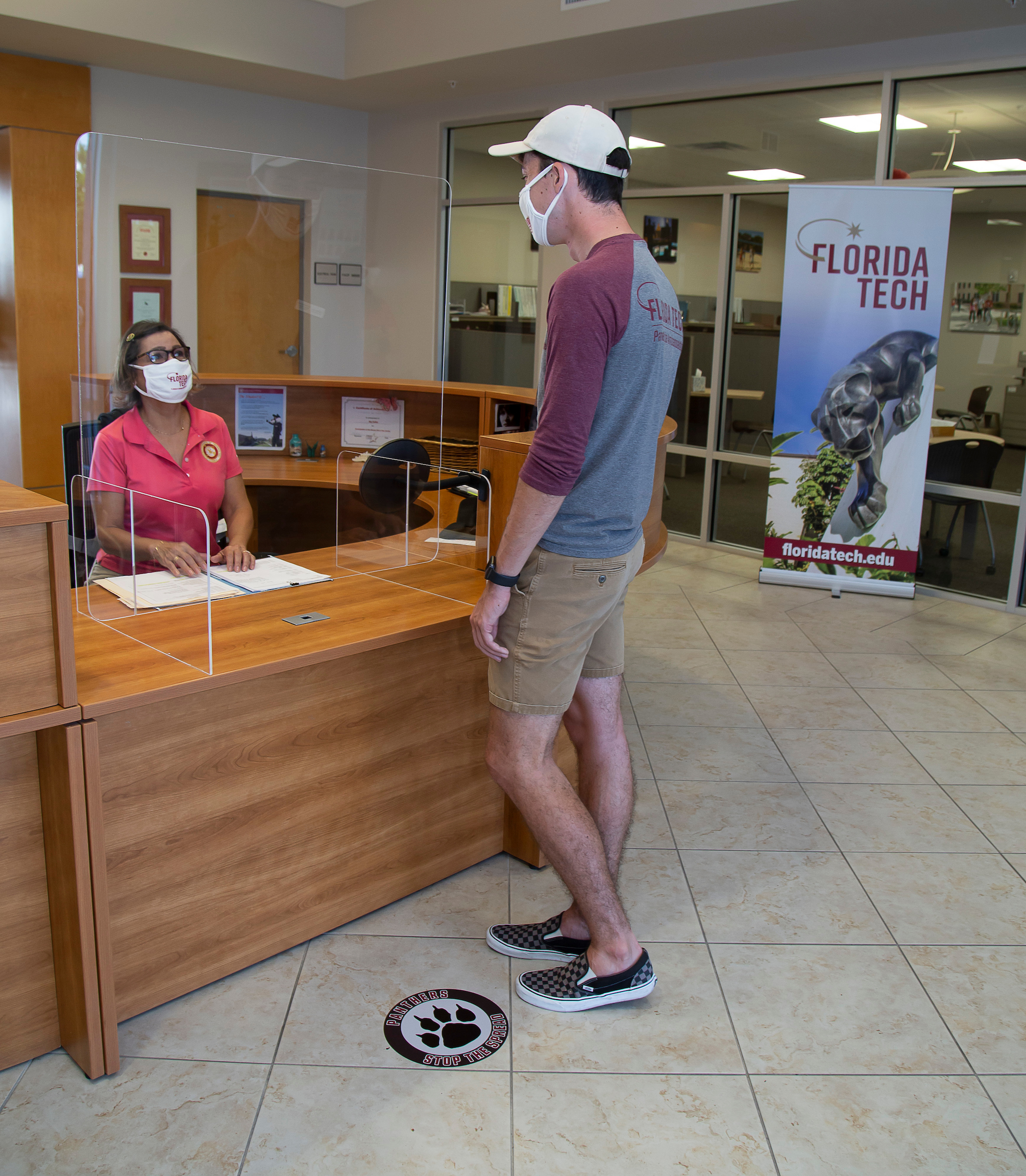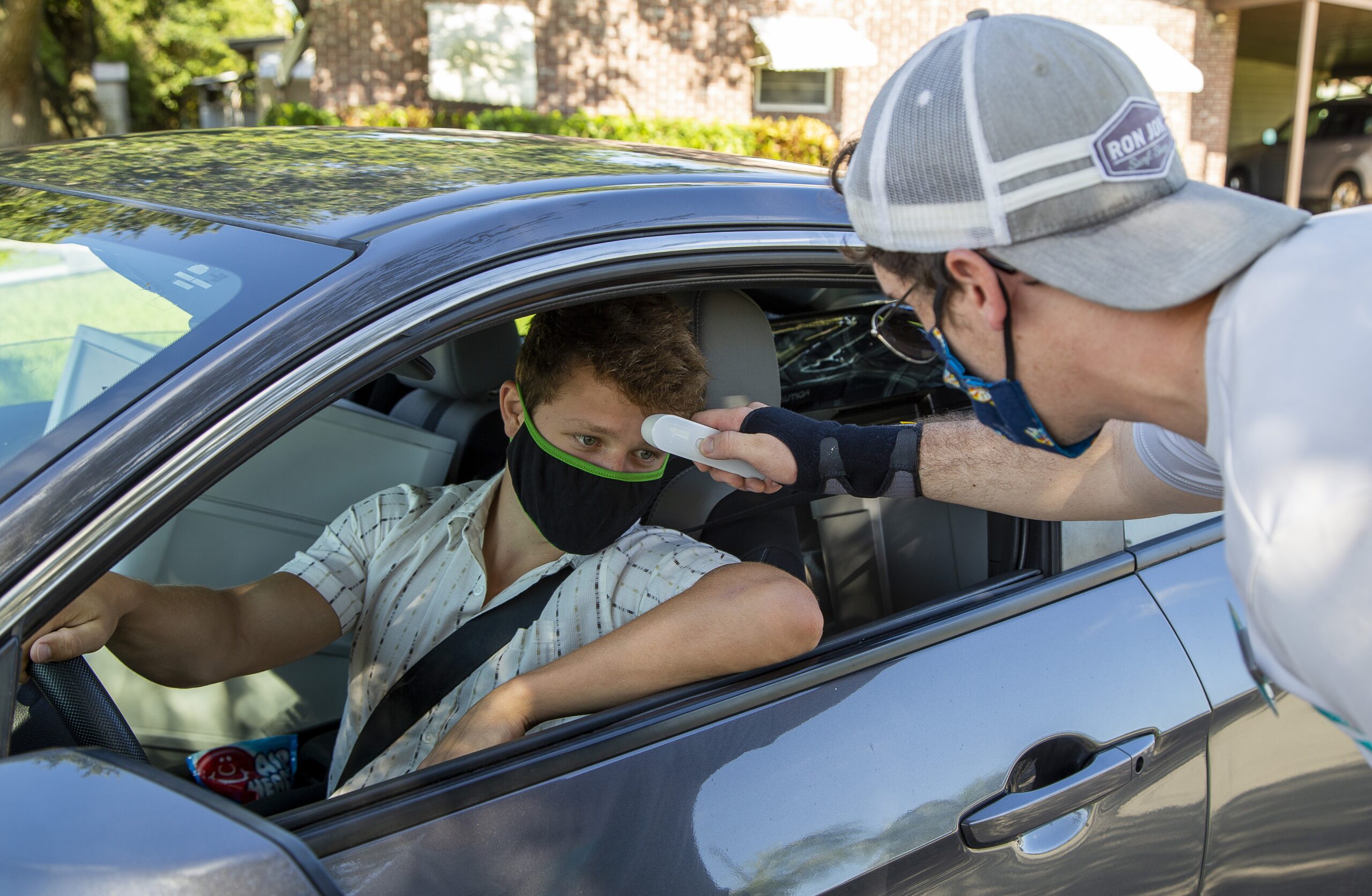(This is the third in a series of articles looking ahead to higher education campus life and academics in the fall.)
This week, Florida Gov. Ron DeSantis announced the state was suspending all COVID restrictions, including mask wearing. Businesses have the option to decide whether to continue COVID protocols, while K-12 schools will be able to keep strategies in place to protect students and teachers.
On the college and university front, there has been a lot of gray area in terms of decision-making. As DeSantis has urged populations to get vaccinated as soon as possible, colleges and universities have largely followed state guidance encouraging students to get them but not mandating them.
As many institutions have promised to be more fully reopen in August, they are nonetheless considering the potential to keep some COVID-19 protections in place, namely mask wearing and social distancing if populations aren’t vaccinated.
At the Florida Institute of Technology, which sits about 40 minutes south of Cape Canaveral in Melbourne, the strategy is to continue implementing and revising as needed its Florida Tech Safe plan. It will be reopening classes for fully in-person learning in the fall and further filling its residences, bringing back as many of its 5,000 students to campus as possible. Some of those mitigation efforts may remain.
Emboldened by a year where COVID numbers have stayed relatively low in a state that was fairly wide open, Florida Tech is confident that with the prevalence of vaccines and its lessons learned that it can return to a more traditional environment in the fall.
“So far, so good,” says Bino Campanini, Senior Vice President of Student and Alumni Affairs at Florida Tech. “We’ve been very happy things have gone. The big disappointment has been the lack of activities and the engagement with our student body, and we had to do online commencements. But we’ve managed to keep the university functioning, and we’ve been able to maintain those face-to-face classes.
“Moving into the fall – and hopefully moving towards a higher population of vaccinated students, staff and faculty – we’re going to require students to be face to face. That remote option will only be available through dispensation from the Provost and the Dean of Students. Obviously, if we do have students who, come August, are stuck in their country, they can do that. But we’re not going have students who are in their dorm or on campus not come to class.”
Classrooms, residences and dining halls
The academic piece, maybe more than its overarching plan around COVID, has been critical for Florida Tech, which spent the bulk of last summer putting together a comprehensive return-to-learn program. It essentially allowed students to choose whether they wanted to live on campus or not and to attend classes in person or virtually, even if they were living in Melbourne.
 “We gave this flexibility to accommodate all types of students,” Campanini says. “This was important for us because we have one of the highest undergraduate international populations in the country. We had a lot of students who just couldn’t come back. We wanted to provide that remote option.
“We gave this flexibility to accommodate all types of students,” Campanini says. “This was important for us because we have one of the highest undergraduate international populations in the country. We had a lot of students who just couldn’t come back. We wanted to provide that remote option.
“We also had a bunch of students who wanted to come to school. All our classes were within CDC guidelines. Obviously, we had to decrease the attendance, we had to create new classrooms, all the things that other schools did. We also recorded all the classes so if a student wanted to go back and look at the class, they could. But by the time we got to this semester, we figured out, if you attend the class, you could be remote but you had to be in the classroom. You couldn’t just watch it on record.”
Class sizes, which were greatly hindered by social distancing and numbers overall on campus, are expected to see a big boost in the fall.
“This semester [in a 25-person class] we were getting 10 students in that classroom and 15 were remote,” Campanini says. “The difference is now those 25 students will be in the classroom, give or take one or two that might be out of the country. It does make a difference in how the class is presented when you’re teaching the 10 kids in a room, and another 20 on Zoom. It’s a different dynamic. That professor will be teaching face to face in a manner that you get more interaction and more learning.”
Classrooms aren’t the only area expected to see major changes at Florida Tech.
Dining areas, which were restricted to students at the beginning of the pandemic before being opened up to faculty and staff more recently, are expected to see increased capacity, as well.
More from UB: Mandatory vaccines mean more in-person at Harvey Mudd
State by state: Colleges mandating vaccination
More from UB: Eyes on the Fall Part 1/Cedar Crest College
Residential life is also expected to expand again. Of the 5,000 or so students that attend, about 1,500 live on campus in a normal year in either traditional dorms or apartment-style setups. Many more live in apartments in the surrounding areas, including graduate students who also work with defense companies that come to Florida Tech in the evenings.
“We still have maybe four 400 beds that are traditional, and we made all of those single occupancy,” Campanini says. “Moving into the into the fall, we would like to get back to double occupancy. However, we are maintaining a level of single occupancy for those students who won’t come unless they get a single room. If for some reason, all our apartment-style rooms get filled, we will still have a section of our residences that will be single for students who are high risk.”

Speaking of risk, what about vaccinations and protocols and getting to fall with numbers that make for a more open campus?
“We’re not mandating vaccines, but we’re doing a big push this summer to get our student body vaccinated as best we can, by encouraging them by telling them certain activities can happen if they do,” Campanini says. “We will also likely do a vaccine drive when they return to campus. We are going to be looking at whether some activities can be reinstituted for students that are vaccinated, for example, you can go into the gymnasium and watch a game. That hasn’t been ironed out yet.
“In order to encourage students to get vaccinated, there’s got to be some kind of carrot at the end of it. We’ve got to kind of come up with ways that they understand, if we all get vaccinated, we don’t have to wear masks anymore. Right now, we’re going to keep that mask mandate and see how the summer goes.”
The latter might be crucial at Florida Tech as the state largely unmasks and gathers this summer while COVID-19 and its variants are still prevalent. Campus officials will do what they can to protect their populations.
“Because we’re in Florida, it’s pretty much open,” he says. “People are saying, that’s great, you’re doing all of that here on campus, but you walk off campus or into a restaurant and there’s no masks. It’s totally open. Most of our issues are not related to campus. We’re pretty restrictive on campus compared to the outside. But once a student leaves the campus, it’s take your mask off, and here we go.”
At the same time, students and staff that are seeing others in the community operate unrestricted might question hardline stances by institutions in Florida.
“We have to start moving for the fall to be a little less restrictive because our students are going to be wondering, what are we doing?” Campanini says.
One of the challenges early on was getting testing ramped up on a campus with fewer resources than the large institutions in Florida. But once it did, Florida Tech did well to react to any positive cases. It likely will be continuing that as it heads to the fall.
“We did very aggressive quarantining and isolation, and that really has worked for us,” Campanini says. “Because of our size, and our residence halls, the way we’re set up, we’re able to do that. One of the big things we did is we appointed Krishna Patel as our COVID case manager, and her and her team have done an amazing job as far as every student that was positive, we were able to isolate them do a lot of tracing and quarantining and providing students with a place to stay. We tried to be as responsive to the students as possible, creating a good environment. I think over time, the student body started to appreciate that and understood that the administration was looking out for their best interests.”

